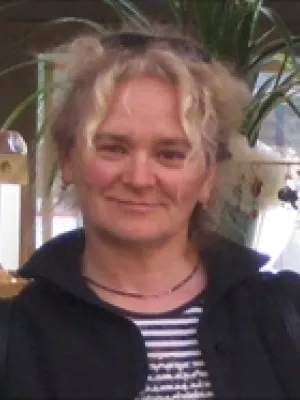Biography
Izabella Damm recently joined our lab as a staff research associate. She hails from Poland where she did her undergraduate work but has been at UCSF for over 24 years in Dr. Walter L Miller's group where she had a lab management role and was providing molecular and cell biology support for research in human steroid biosynthesis. Izabella has been acknowledged as a contributor for 13 research articles in peer reviewed journals published by the Miller lab in USCF from 2005 to 2013 as well as a named co-author on one.
Education
1978 Medical Institute, Dept.of Medical Analytic, Warsaw, Poland (graduated as Medical Technologist)
1980 Pedagogical University, Dept of Chemistry,Warsaw, Poland (graduated with Bachelor in Science)
Research Interests
Mammalian cell culture
Transfection techniques
Promoter-reporter luciferase assay
Dna and rna isolation
Dna cloning
Protein expression and purification from bacteria
Yeast and mammalian cells
Enzymatic assays
Cell-based assays including elisa
Publications
- Near-Single-Cell Proteomics Profiling of the Proximal Tubular and Glomerulus of the Normal Human Kidney.| | PubMed
- A URINE SCORE FOR NON-INVASIVE ACCURATE DIAGNOSIS AND PREDICTION OF KIDNEY TRANSPLANT REJECTION.| | UCSF Research Profile
- NEAR-SINGLE-CELL PROTEOMICSPROFILING OF THE PROXIMAL TUBULAR AND GLOMERULUS OF THE NORMAL HUMAN KIDNEY.| | UCSF Research Profile
- NOVEL HUMAN KIDNEY CELL SUBSETS IDENTIFIED BY MUX-SEQ.| | UCSF Research Profile
- USE OF TCRM TO AID DIAGNOSIS OF ALLOGRAFT REJECTION IN KIDNEY TRANSPLANTATION.| | UCSF Research Profile
- A urine score for noninvasive accurate diagnosis and prediction of kidney transplant rejection.| | PubMed
- A urinary Common Rejection Module (uCRM) score for non-invasive kidney transplant monitoring.| | PubMed
- A Novel Multi-Biomarker Assay for Non-Invasive Quantitative Monitoring of Kidney Injury.| | PubMed
- Cell-Free DNA and CXCL10 Derived from Bronchoalveolar Lavage Predict Lung Transplant Survival.| | PubMed
- Optimizing Detection of Kidney Transplant Injury by Assessment of Donor-Derived Cell-Free DNA via Massively Multiplex PCR.| | PubMed

